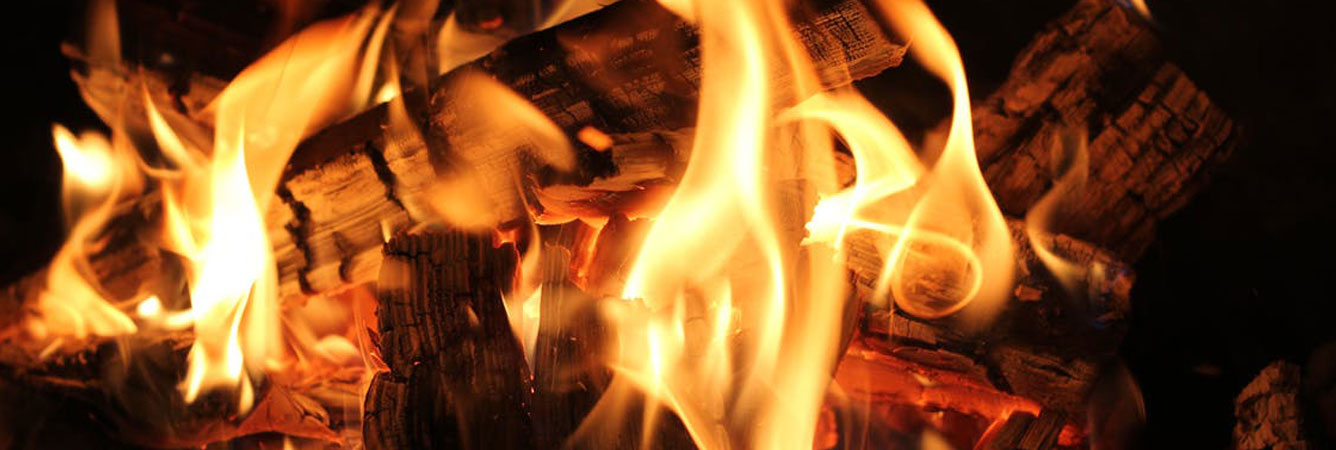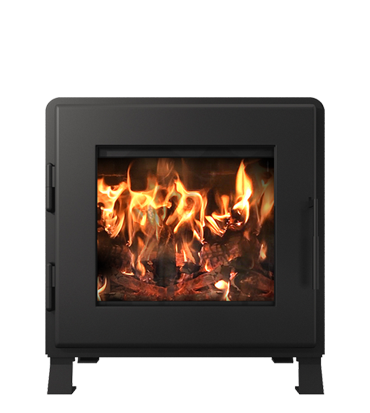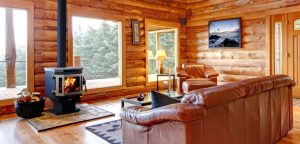Wood Stove 101: The Best (and Worst) Firewood Types

When choosing firewood for your wood stove or fireplace, you have a lot of options. There are two main factors you must consider when choosing the best logs for a wood burning stove: wood type and wood moisture content. In this post, we’ll explain which types of wood make the best logs for a wood burning stove or fireplace. To learn about firewood moisture content, check out our how-to guide post Wood Stove 101: Using Seasoned Firewood.
Why does it matter what type of wood I burn?
Choosing firewood wood is more complicated than you think. What you burn in your wood stove is critical to your wood burning stove’s performance and longevity. Whether you harvest your own firewood or use a delivery service, you need to know about wood species when choosing firewood. Wood species affects how well your stove performs in several areas.
1. Efficiency: The efficiency of your wood stove can depend significantly on the type of wood you are burning. Softwoods and resinous (oily) woods may burn inefficiently. For this reason, pine, eucalyptus, birch, aspen, and a few other species do not make the best logs for a wood burning stove.
2. Appearance: Choosing firewood from a typically resinous species may create thick black smoke, which clouds the front glass of your wood stove. Once clouded, cleaning the glass can be more difficult.
Stop fussing with your old, hard-to-use wood. Shop MF Fire today!
3. Reliability: Choosing firewood that is soft and resinous also negatively affects the reliability of your wood burning stove. Softwoods and resinous firewoods produce chemicals that are harsh on the internal components of a wood stove. Specifically, the catalytic combustor and the combustion fan of Catalyst can be negatively affected over time. For this reason, hardwoods provide much less wear and tear on wood stoves and make the best logs for a wood burning stove.
4. Safety: Burning resinous woods also creates a potential safety hazard in your home. Resinous woods produce significant amounts of creosote, which builds up within the chimney and is the main cause of chimney fires in wood stoves.
Best Firewood Types to Use
So, what are the best logs for a wood burning stove? Any non-resinous hard wood can give you a good burn, but our three favorites are:
1. Oak: Known for its long, slow burns, oak is likely the best firewood wood. Oak is a dense hardwood available throughout most regions of North America. While oak wood can take a little longer to become properly seasoned than other firewoods, the fire from well seasoned oak in your wood stove can’t be beat. This is the mainstream firewood favorite for wood stoves, and probably one of the all-around best logs for a wood burning stove.
2. Maple: Maple firewood burns very similarly to Ash. When properly seasoned, it produces long and steady burns in your wood burning stove. Maple can be found throughout the entire continental United States, making it a favorite firewood choice for wood stoves.
Check out our beautiful, modern, and easy to use wood stoves!
3. Ash: Burns steady and is easy to split — what more could you ask for? Ash provides some of the best wood for burning in a wood stove. It is largely found in eastern and central North America, but is available in other wood burning regions as well including the West Coast of the United States. The emerald ash borer, an invasive species native to northeast Asia, has killed many ash trees throughout the United States. These affected trees are perfect for responsible firewood harvesting.
While oak, ash, and maple are our top three, there are many other types of firewood wood that are acceptable for wood stoves:
- Hawthorn
- Beech
- Cherry
- Mulberry
- Apple
Worst Firewood Types to Use
Not all wood is created equal. Just as there are firewood types we recommend, there are also several we do not recommend using. Most of these are not recommended because they are either softwoods, highly resinous, or both! Softwoods burn quickly in,efficiently and produce harmful chemicals. Resinous woods produce thick oils that blacken glass and foul the inside of your stove. We do not recommend using the following firewood types:
- Pine
- Poplar
- Cedar
- Eucalyptus
- Alder
With this guide, choosing the best wood for burning in your wood stove is easy! Have any questions or comments on your experience using these or other firewood types? Need some more help with choosing firewood wood? Leave your comments below!
Ryan Fisher is the Chief Operating Officer of MF Fire







